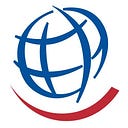Dr. Bisola Onajin-Obembe’s 10 recommendations for bridging the gaps in anesthesia care for billions
By Melanie Paxton, Health Policy and Advocacy Department, Operation Smile
Almost 17% of the world’s population lives in Africa, but most of them lack access to safe anesthesia due to a severe shortage of anesthesia workforce.
The disparity between high-income countries and low-income countries is alarming. The United States, for example, has an average of 20 physician anesthesia providers per 100,000 people compared to 0.58 physician providers per 100,000 people in Nigeria, where Dr. Bisola Onajin-Obembe resides (World Federation of Societies of Anesthesiology, Anesthesia Workforce Map). A minimum of four specialist anesthetists per 100,000 people are recommended to meet the surgical needs of a population.
Unfortunately, sub-Saharan Africa falls significantly below this threshold with less than one anesthetist per 100,000 population. To reach the target, African countries need more than 300,000 new anesthesiologists by 2030.
In December 2022, during the Operation Smile Global Surgery Speaker Series, Dr. Onajin-Obembe, president of The Global Alliance of Surgical, Obstetric, Trauma and Anesthesia Care (G4 Alliance), proposed 10 recommendations to address the global gaps in anesthesia care delivery.
Dr. Onajin-Obembe is lead consultant anesthesiologist for maxillofacial surgery, otolaryngology, and ophthalmology at the University of Port Harcourt Teaching Hospital, and a faculty member for the Faculty of Clinical Sciences, College of Health Sciences, University of Port Harcourt, Nigeria. She is also an adjunct professor of change management for the International School of Management’s MBA program at the Institut Supérieur de Gestion in Paris.
Converging her background in medicine and anesthesiology with her passion for leadership and management, Dr. Onajin-Obembe seeks to create solutions to anesthesia workforce challenges globally. Notably, she served as the workforce lead for the National Surgical, Obstetrics, Anaesthesia, and Nursing Plan (NSOANP) by the Federal Ministry of Health of Nigeria. This policy was launched in 2019. Dr. Onajin-Obembe now serves as a member of the Implementation Committee, helping translate the policy into action.
As a council member of the World Federation of Societies of Anesthesiologists and a practicing anesthesiologist, Dr. Onajin-Obembe understands the complexities and gaps of the anesthesia workforce globally. Thus, she shared her recommendations for addressing these gaps with Operation Smile.
Dr. Onajin-Obembe’s first recommendation is for key actors to understand and leverage the surgical ecosystem. A profound knowledge of the care pathway and particularly the referral system of the region is essential for developing solutions to address the gaps.
Secondly, she recommends deliberate and strategic planning and prioritization for the community, country or region, as was done while developing the NSOANP in Nigeria.
In addition to understanding the region and having a plan, Dr. Onajin-Obembe stated the importance of creating training programs in partnership with experienced institutions. She highlighted the examples of the University of Global Health Equity and the G4 Alliance, which are part of a global network to enhance access to health equity and the development of leaders. Operation Smile is proud to be partnered with both organizations in advancing global health access for all.
Training surgery and anesthesia leaders in partnership with education organizations that promote an atmosphere of learning is very important in bringing solutions to the global space. Transformational change in global anesthesia care can happen. The key is to take it one step at a time and maintain momentum.
Dr. Onajin-Obembe added that self-improvement and changing one’s perception will lead to mastery. Creating a learning atmosphere where growth is exciting and meaningful is needed to produce expected outcomes. She firmly believes and lives this out, and she has received multiple awards including the Ondo State Female Role Model and Woman of the Year award for her leadership achievements.
There have been pros and cons to the different learning settings for anesthesia training concepts over time, according to Dr. Onajin-Obembe. For example, a strength of Dr. Robert Hingson’s concept of Continental Training Centers was the centralization of training, while a weakness was the delayed development of certain regions who could not access the centers due to travel and time commitments. She also referred to Dr. Roderick Gordon’s concept, which focused on creating and managing strong teaching anesthesia departments in colleges from low- and middle-income countries. This concept was highly dependent on the environment and on the availability of drugs and equipment in the region.
Her final recommendation focused on the Implementation Action Research (IAR) concept, as it is relevant in the COVID-19 era. It emphasizes the virtualization of training and global-local partnerships. It provides in-depth insights into the major dynamic factors that contribute to the workforce gap, and it allows for targeted geographical training and development. Students learn the theory and practice simultaneously, which leads to a gradual transformation, promoting change.
Dr. Onajin-Obembe believes that narrowing the gap in anesthesia care is possible.
In order to do so, countries must take ownership of their anesthesia workforce training and development and not wait on others. In addition, having a global surgical mindset and understanding the complexities and interrelationships of surgical and anesthesia care services are important. The ability to create solutions using a well thought out IAR methodology will help enable communities, countries and regions to create the quality of anesthesia workforce they desire for the future.
